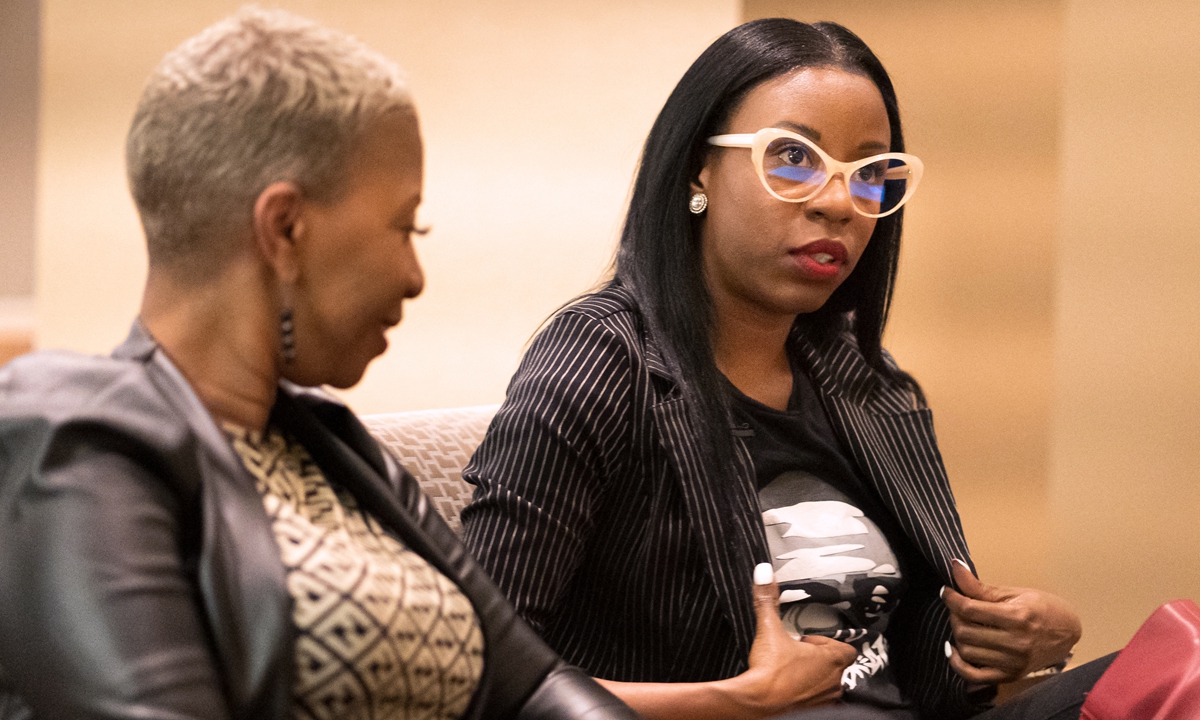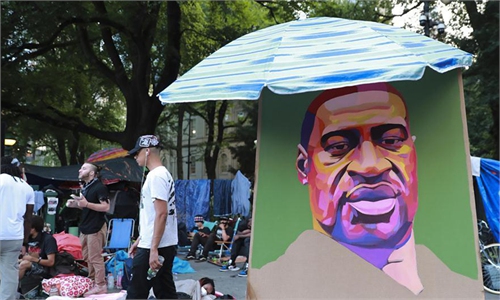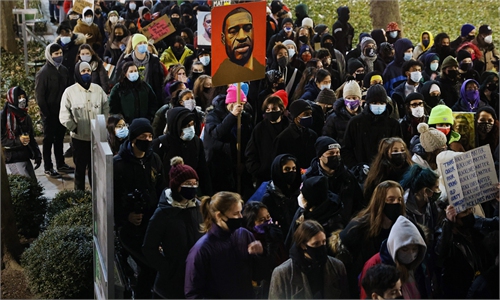George Floyd’s cousin testifies
Police officer on trial in Minneapolis for shocking murder

George Floyd's cousin Shareeduh Tate (left) and daughter Tedra McGee, speak during an interview after the second day of jury selection began in the trial of former Minneapolis Police officer Derek Chauvin accused of killing Floyd on Tuesday. Photo: AFP
After sitting through the first few juror selections, George Floyd's cousin said Tuesday she is feeling "optimistic" about the outcome of the trial of the police officer charged for killing her family member in a case that set off a surge of anti-racist activism throughout the US."It's a bittersweet feeling for us," said Shareeduh Tate, who represented Floyd's family in the courtroom on the first day of former officer Derek Chauvin's trial.
"The reason why we're here is not ever going to be something to celebrate," she told AFP. "But we're excited that the judicial process is getting started."
In May 2020, in the northern US city of Minneapolis, Chauvin, a white police officer, knelt on the neck of Floyd, a black man, for nearly nine minutes while he screamed "I can't breathe."
Floyd's last words became a rallying cry as protesters from New York to Los Angeles - and around the world - marched for weeks against police violence and racism.
"Initially for us, it was personal, obviously, because we lost a loved one," said Tate, 50, who traveled from Houston to Minneapolis, where the trial is taking place.
"Shortly thereafter, we understood it was something far bigger than just the personal loss."
"The reaction, and the movement in general that has taken place makes me feel optimistic that this outcome will be different," she said.
In the US police officers are rarely prosecuted, let alone convicted, for the use of excessive force, as juries tend to give them the benefit of the doubt.
But after the groundswell of demonstrations over the summer, "I have a lot of confidence in the prosecution," Tate said.
But she remains aware of the constraints of the judicial system.
"At the same time, we understand that just because that video shows [Floyd's death], doesn't secure a conviction right away," Tate said.
Chavin's trial began Tuesday with the selection of three jurors. Arguments in the case will not begin until March 29 and a verdict is not expected before the end of April.
AFP



